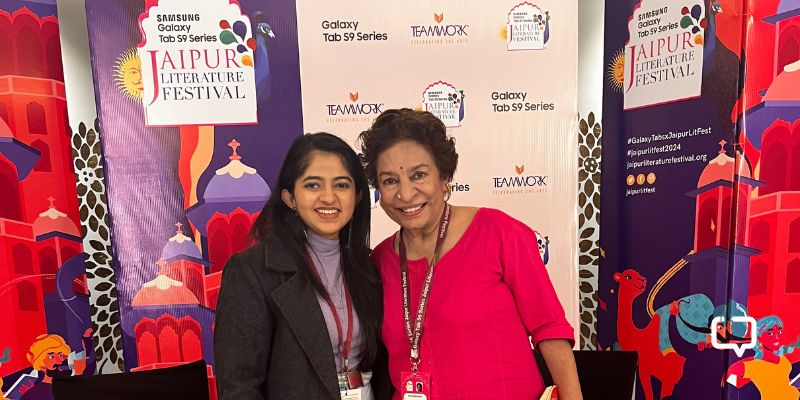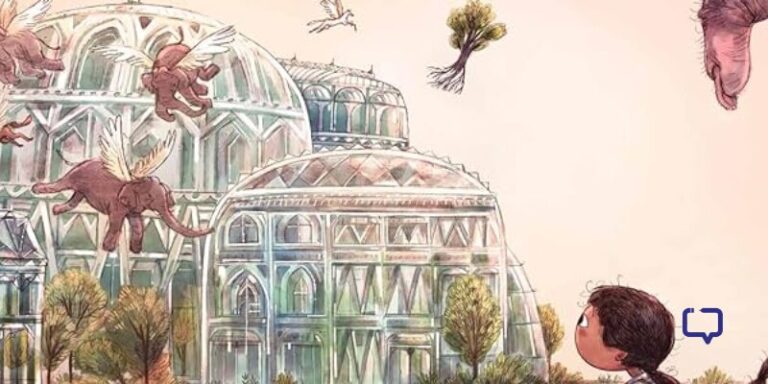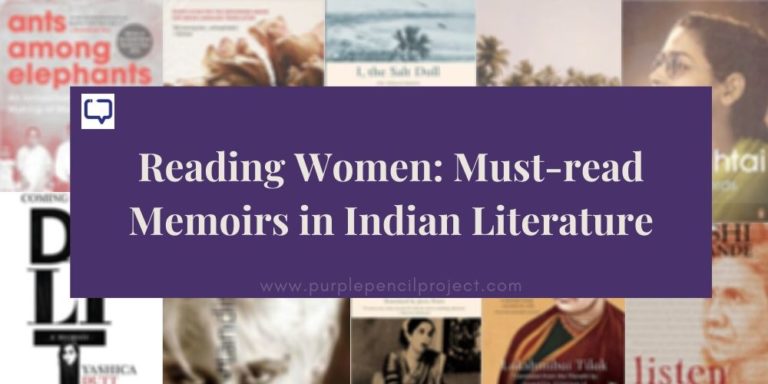Prakruti Maniar was in conversation with award-winning writer Saras Manickam at the Jaipur Literature Festival early this year.

An award-winning writer, Saras Manickam’s story, My Mother Pattu won the regional prize for Asia in the 2019 Commonwealth Short Story Contest.
In 2021, it was included in the anthology, The Art and Craft of Asian Stories, published by Bloomsbury, and in 2022, it was published in The Best of Malaysian Short Fiction in English 2010–2020.
She also won the 2017 DK Dutt Award for her story, ‘Charan’. Some of her other stories have appeared in Silverfish and Readings from Readings anthologies, while one was shortlisted for the 2021 Masters Review Summer Short Story Award. Excerpts transcribed from the video interview.
Prakruti Maniar: This is the first time your book is out here in India. How does it feel to have a different readership?
Saras Manickam: I have Indian people messaging me since I’ve been to Kerala, the Chennai Book Fest, then here, and I’m going to Mathrubhumi (Book Festival) next. One of the people from Kerala messaged me and said, “I love your book.” I cried and cried and cried. Okay, everything is not weepy (in the books). But one or two, what do you call it? They’re a bit, not sad. I wouldn’t say sad. I don’t deliberately create emotions. I don’t manipulate emotions. But because they’re authentic, they strike a chord with people.
To give you an example, one of the (readers) cried over one of the stories about a disabled child, a mother talking to God, telling God to F off, as it were. Because the child is disabled, and then you have got all these lovely pictures of people saying God has chosen you, and that’s bullshit. In real life, in day-to-day life, it is bullshit because so many things come into play.
I have parents telling me you’re telling me things that I have no words to say, which is what I feel. I also had pastors come in to tell me, we know how you feel, but you shouldn’t say it.
Prakruti Maniar: A writer’s job is to say what you think.
Saras Manickam: It’s challenging to explore comfortable conventions. Mothers should be like this. Children should be like this. Husbands. And always mothers. It’s not so much husbands or sons. It is mothers. Women have to do this.
And you have to be happy doing it. If you are unhappy doing it, you have a price to pay. A lot of women here (in the book) pay the price. So that’s what I talk about because they’re not extraordinarily famous. Women, just ordinary women, migrant workers, housewives, writers, refuse to bow down to the patriarchy. Or they challenge conventions that make you happy, and they pay the price.
Everyone says, oh, My Mother Pattu is probably a story of sacrifice. The great mom, Mother Earth. She’s not. She’s a horrible woman. She abuses a child. But having said that, you can’t feel angry with her. You want to hate her because she’s done such horrible things, but you can’t. It’s because I’m talking about real people. There are no good people or bad people.
People are complicated. People are complex. So are women. You cannot just portray the good woman always and put them in a box of being good. Putting them on a pedestal is worse because you can’t climb down.
Perpetrators are also victims. Victims are also perpetrators. I’m so scared of writing about victimhood, which is wrong. You don’t want to do that. You don’t want to dine out on being a victim. Why do that, you know? Get a life.
She talks about her mother. Racial discrimination affects Indians. Fine. But she also talks about her mother, who grumbles when her father brings his workers to the house for lunch. What is their religion? What is their race? What is their caste? We are just as bad. Talking about bigotry. Intolerance. So, I wanted to talk about it openly. We need to talk about it.
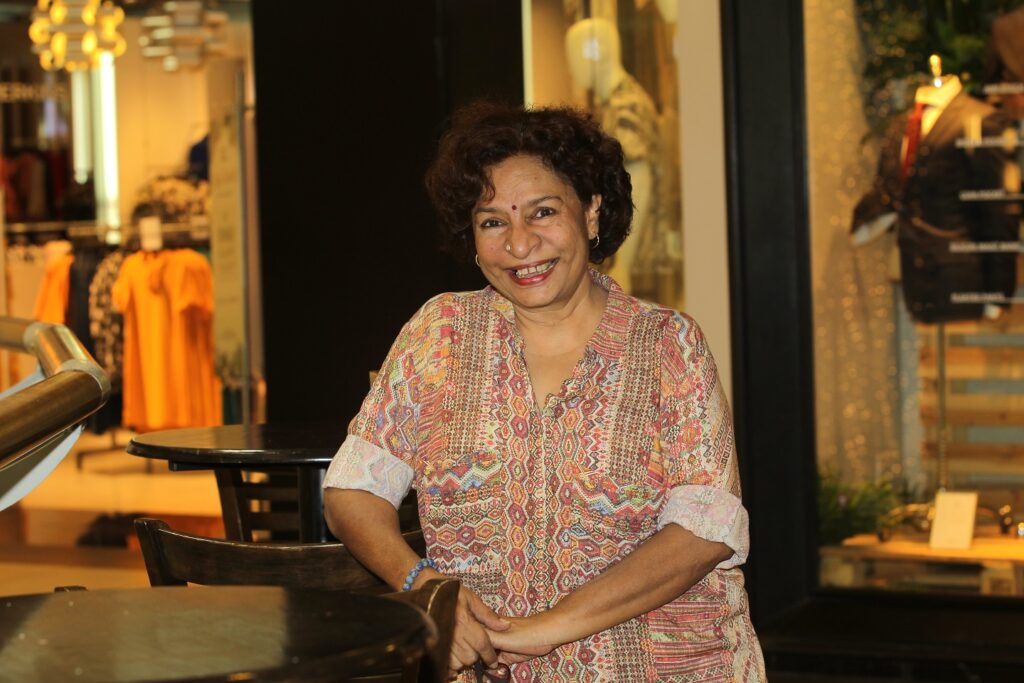
Prakruti Maniar: What is your secret to writing emotionally charged stories with readers coming to you and saying,” I cried so much after reading”?
Saras Manickam: My secret would be that if I like a book, I read it once for pleasure. The second time, I read it for the craft. How the bloody hell did they create structures, sentences, and pictures? You learn the craft from the best and the books you enjoy. Because you better write stories like them. Those kind of things that you want.
Prakruti Maniar: Which were the books and stories that inspired you that made you want to pick up and say, “Okay, this is the story I want to write, and this is the mood I want to write in.” Whom did you turn to for craft?
Saras Manickam: Okay, this is the embarrassing bit. I read detective fiction. I adore detective fiction. I adore Dorothy Sayers, Elizabeth George, and Louise Penny. I can’t write a line of detective fiction to save my life, but their craft. The way they create characters. And the way they cover emotions and layer the layers, I am learning.
Prakruti Maniar: When you write such emotionally heavy stories, can you detach from those emotions as a writer? Or are you also sometimes breaking down while writing? How do you deal with this emotionally?
Saras Manickam: Two parts to it. Most of the stories are written in the first person. Because you take on the role of the protagonist, and you do feel. You cry, you laugh, you tingle.
But then the author’s authorial ego is like, “Hey, I’ve written a prize-winning story. I’m good,” and you think you’ve got it done. That just happened to me many years ago. Some of my stories got published when I was in university. And I said, “I’ve got it, I’ve got it. It’s easy. Stories.” And that was wrong because, subsequently, all stories got rejected. Because I became too clever. I began to think of myself. I didn’t think of the story. I didn’t think of the characters.

You want to shape the story to how it should be. It fails because it’s not your story. It’s the character’s story. It’s a story’s story. You are a channel, and let the characters speak.
Saras Manickam
Because I’m half slob, I took a long time to realize that. Can I get out of the way and let the story speak? Let the characters speak? It’s so vital that you’re only a conduit for the story. You forget it because you think you’re so clever. I tried that. I still try that because I never learn.
You want to shape the story to how it should be. It fails because it’s not your story. It’s the character’s story. It’s a story’s story. You are a channel, and let the characters speak. So, when I try writing, the ending that finally happens is entirely different from what I would have envisaged.
I wrote the first story here some time ago. When it was ready for publishing, I loved it. I thought it was so good. When I returned to it, just before I published it and submitted it, it was rubbish. Not rubbish, it was good, but it was smug. Very smooth. Very nicely folded and shaped. That wasn’t the story. Then I realized I was not being fair to the characters. The characters deserve something more. The final treatment made it so much better that someone wrote to me, saying, I know many women like that character.
A woman is loved by her husband, loved by the family, loved by everybody. But she has no agency. She has no power over her own life. Her husband has the power. The men have the power. Everybody has control over her life. That’s what she realizes. Much as she’s loved, she can’t make her own decisions. That was a turning point for many people. “Hey, you wrote about that.”
Prakruti Maniar: You’ve written all sorts of things. Copy, textbooks. You have taught. How has it affected your craft? Since fiction demands inhibition-free writing, textbooks have an uptight format.
Saras Manickam: In real life, you’ve got to earn money. You have to keep on working. Nobody buys fiction in Malaysia, and it was also that we’re not very good at it. Writing school books was easier. I wrote for Oxford, which was Oxford Fragile in Malaysia. Longman before it became Pearson, and then worked for Pearson. The reference books for all the major academic publishers. That brought in the money. Which is very important, you must stay in that.
And if you’re writing like that, it takes a lot of work to return to fiction. Because many of us can’t break away. It’s seamless. It is true. That’s why it took so long. I’m a hundred years old. Ages and ages later, I have finally come out with a debut collection. But I think now the stories reflect a maturity I wouldn’t have had in my teens or youth. A roundedness. That’s how characters can be complex yet not wholly hateable and shallow.
Prakruti Maniar: You spoke about Malaysian literature needing more fiction. Can you talk more about that?
Saras Manickam: Books are so expensive in Malaysia. One of the wonderful things about India is the price of the books. I’m buying this book to give away copies to other people. They say, “Buy me 40, I can’t afford it anymore. I can’t afford to do that in Malaysia.” It’s 75 Ringgit, this book. It is equivalent to about 20 ringgit in India, which is a huge difference.
Coming to all the festivals here, I realized the literary scene is vibrant. People love to read, people love to discuss, they love to buy books and talk about them. That’s what makes a society literally and thriving culturally.
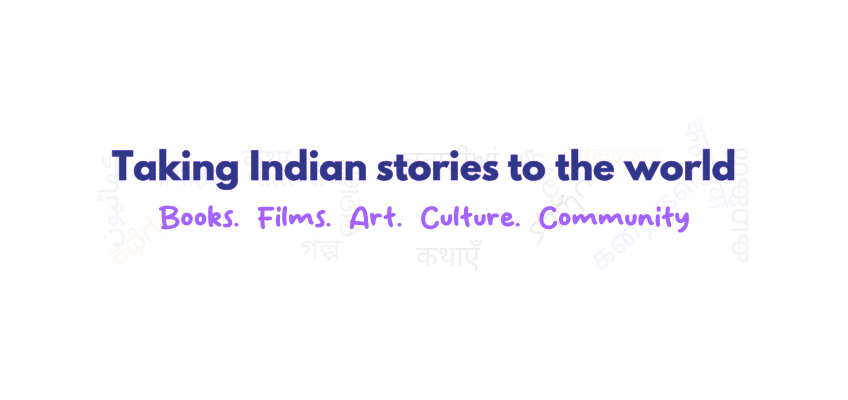
Prakruti Maniar: Are there any Malaysian authors that you would recommend?
Saras Manickam: Preeta Samarasan is the best writer we have as a Malaysian because she is so incisive in her insights, the power of the language, and how she can create.
Then you have Tash Aw, who lives in London, I think. He’s also an award-winning writer. We have Tan Twan Eng, who is also living in South Africa. We’ve also got Karina Bahrin, who won the Epigram Prize in Singapore.
Prakruti Maniar: What next? Are you working on something?
Saras Manickam: Yeah, my family’s preventing me by being horrible. The horrible children, messy. Mom wastes my food, this, that kind of stuff. The house needs to be cleaned. Clothes need to be washed and dry-ironed. I wouldn’t say I like it. I hate housework. Yes, but every woman goes through that. And you write in between that. You don’t use that as an excuse. That’s how I do it. A bit slow there. That part’s slow. But it gets done, even if slowly.
Prakruti Maniar: Perumal Murugan, in his talk, mentioned your name three times. What are your thoughts on the connections needed between the writing community?
Saras Manickam: That’s a standing ovation that makes up for the empty crowd in the morning, and also, he didn’t say I was a good writer. He said, “My friend”. It’s a personal connection. Writers need to support each other. It shouldn’t be a competition that I want to sell more books than you.
That doesn’t make sense. Because our writing is different. My reader may not be your reader. Your reader may not be my reader.
Coming to JLF, everybody’s been so supportive. Writers, family, my brothers and sisters. I’m here on the shoulders of other people. I remember that. You need to be appreciative and grateful. Because people have supported you.
You can also watch this interview with Saras Manickam on our YouTube Channel – The Purple Corner

As part of our effort to compensate our writers better, we at Purple Pencil Project have launched the #PayTheWriter initiative, where readers can directly show support and appreciation for our wonderful team.
Scan or upload this image on your UPI app, and show them the love 😀








